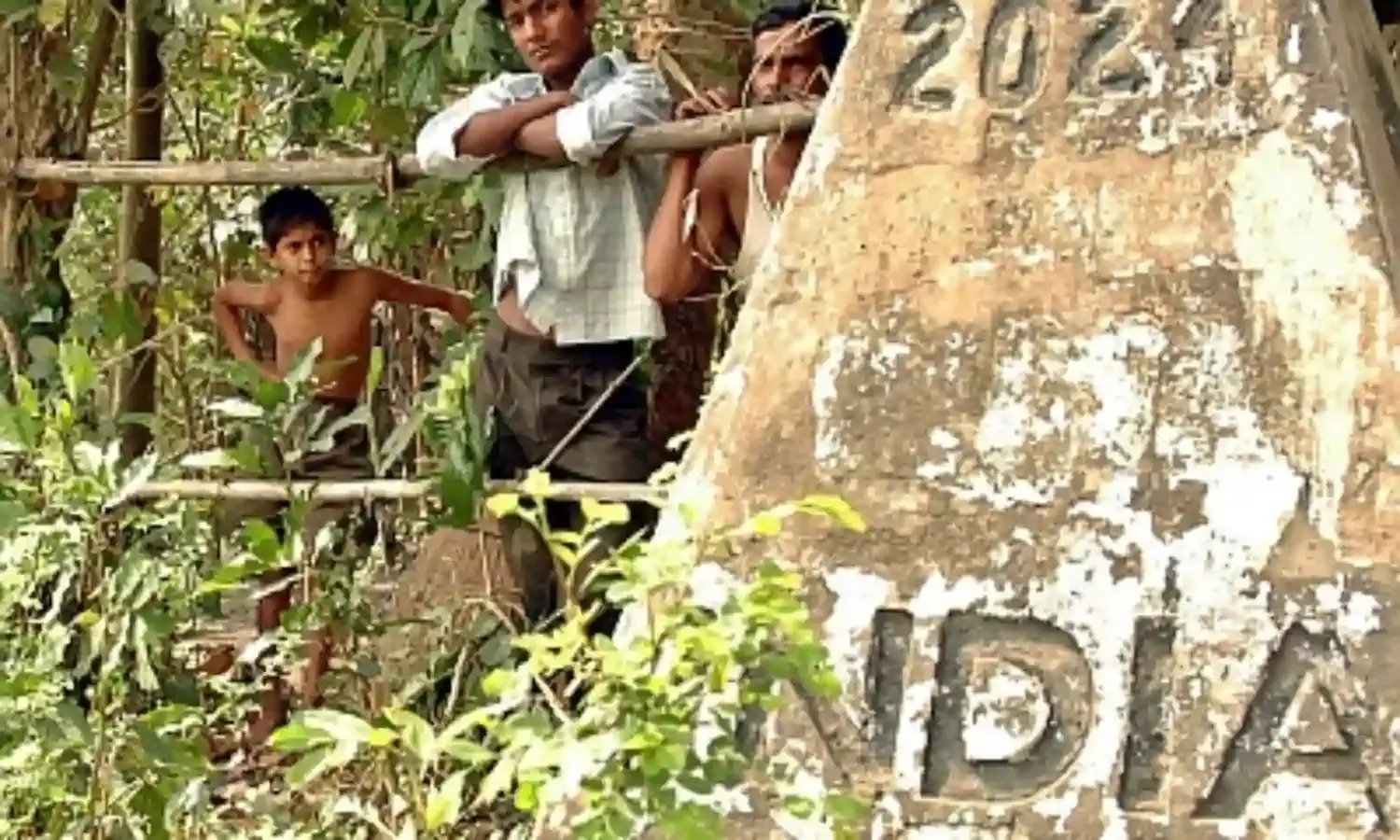A National Security Mess
The right potion

The BJP’s desperation is showing. Confronted with budding unity in the opposition, the ruling party is trotting out its election cards. This time round it is taking credit for outing illegal immigrants in Assam, as the Supreme-Court mandated and supervised National Register of Citizens (NRC) process culminates in the state.
Championing the illegal immigrants issue enabled the party to make inroads in northeast India. Now, it seeks electoral dividends nation wide. To the extent it succeeds, it would deepen an ethnic divide, planting and nurturing Bengali nationalism. This is the gravamen of Bengali political heavyweight Mamata Banerjee’s warning, of a possible, if not impending, civil war.
It is strange that a party which prides itself on being sensitive to national security issues should need such cautioning. And, after claiming that four million illegal Bangladeshi immigrants have been corralled in Assam, it is curious that the BJP should make a national security case for appropriating the credit.
The BJP may yet be surprised to find its expectation upturned that religion will hold India together, irrespective of buffeting from ethnic subnationalism.
It is unmindful of recent subcontinental history, which saw a second partition in 1971, with Pakistan – founded on religion – falling apart. East Bengalis threw off the yoke of Punjabi rule and the imposition of Urdu in a civil war.
Mamata Banerjee is no stranger to political grandstanding and hyperbole, but even if civil war is an exaggeration, national security could do without a stirring of Bengali (sub)nationalism. Bengalis constitute a quarter of a billion people and inhabit a contiguous territory on the subcontinent. They are happily divided by religion, for now. If they were to come together as an ethnic nation, they would easily come among the top five nations by population.
History should not end up recording that the first step in this direction was the changeover to the name ‘Bangla’. Already, social media has begun to record Bengalis being mistaken for Bangladeshis. A Bengali (Hindu) writes plaintively about being wilfully mistaken for a Bangladeshi in the national capital. In one brazen case, a Bengali (Muslim) was hacked to death in Rajasthan and the gruesome video uploaded. The perpetrator was later honoured with a float at a religious procession depicting him as a new-found saffron hero.
The Kashmiri, Naga and Sikh insurgencies testify that India is no stranger to ethnic nationalism. The long-running Manipuri and Assamese insurgencies indicate that being Hindu does not preclude an ascriptive challenge to the state. One of India’s concerns has been Tamil nationalism. The desire to preempt its taking an ugly turn prompted India’s Sri Lankan intervention in the eighties.
National security minders in government need to assert themselves to keep the ruling party from unnecessarily putting India’s Achilles’ heel of plurality to the test. The national security establishment’s blind spot is this: that although it tacitly acknowledges plurality as vulnerability, it believes it can paper over it with a turn to religion, using Hinduism as the glue. Its myopia lies in mistaking Hindutva for Hinduism.
National security czar Ajit Doval’s speeches (which litter YouTube today) throughout his ten-year post-retirement wait in the wilderness under UPA rule, make the case for a polity based on religion, and under a strongman to boot. Even as the aspiration was declared, the threat of Islamist terror was magnified – illegal immigrants figuring as a subplot – with Hindutva footsoldiers planting bombs from Surat to Malegaon to build the case.
The stratagem eventuated in Modi, hurling a national security cloak over his chest, ascending to power.
This also explains the home minister’s case, made in the debate preceding the no-trust vote in Parliament, that there have been no terror incidents in India over the past four years.
The culmination of the NCR process is handy, as is the Supreme Court’s coincident appraisal of the challenge to the constitutional validity of Article 35A. To some the Article is the remaining thread that binds Kashmir to India; to others it keeps Kashmir from being bound to India.
No doubt the Muslim angle to this story prompted the Centre’s interest, so much so that the one issue credited to the otherwise moribund mission of the special interlocutor in Kashmir has been his interest in Article 35A. This will whet the BJP base’s appetite, and keep it hoping that in its next iteration in power the BJP would follow through on its manifesto promise of ridding the Constitution of Article 370, that other Article – which to some keeps Kashmir as an ‘atoot ang’ of India, while, to the BJP, it keeps Kashmir different and distant.
There is yet a trump card the BJP has up its sleeve, which it does not need to reveal as it is rather well known – the Mandir card.
At present it is happy to restrict itself to building a statue of Lord Ram. Rahul Gandhi’s speech in Parliament during the no-trust motion, which though made without recourse to notes and with the historic hug on its heels, has not catapulted him into a political David out to lay low the Modi-Goliath. The Modi-Shah duo likely sees a bigger challenge elsewhere, and does not want to elevate the profile of the saffron-clad potential challenger Ajay Singh Bisht, alias Yogi Adityanath, who would, as provincial chief, surely corner the credit for any progress on the Mandir.
In a nutshell, the BJP in its pursuit of polarisation to conjure up another Modi wave can leave a long-term, three-fold national security mess behind. This is the primary security concern, one that needs calling out. It cannot be left to the national security leadership appointed by the ruling party; the more so because its ideological subscription to the Hindutva national project makes it believe that a coat of saffron paint is just what India’s debilitating multi-hued reality requires.
Four million incarcerated in concentration camps is just the right potion to bring this about.



